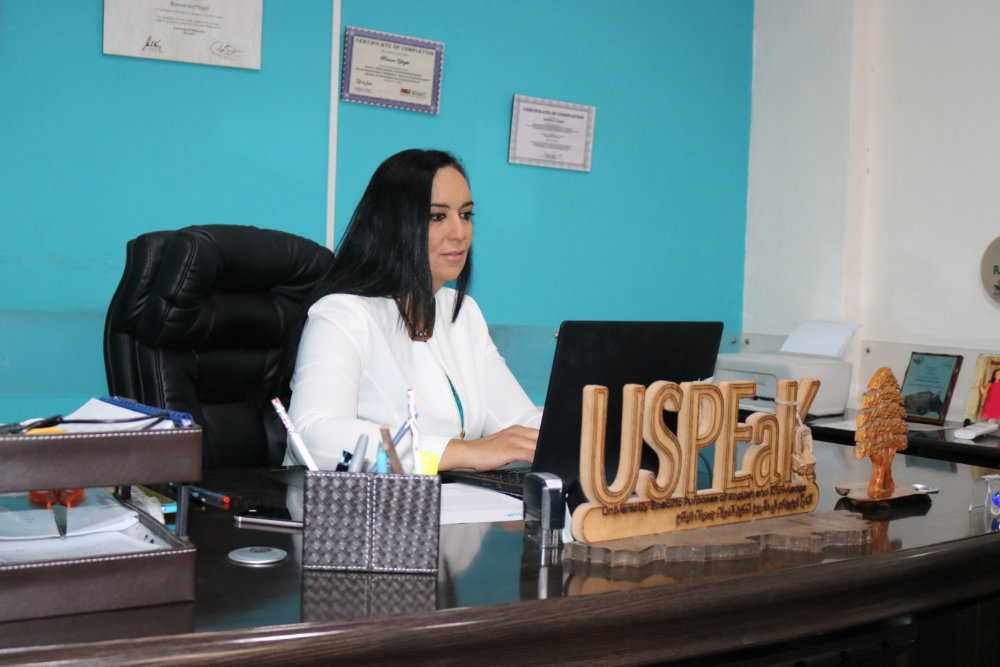BEIRUT: A senior Lebanese health official broke down in tears while describing how stricken coronavirus patients had begged him for a vacant hospital bed so that they would not die at home in front of their families.
Dr. Joseph Al-Helou, director of the Ministry of Public Health’s medical care directorate, said that hospitals in Lebanon are rapidly being overwhelmed but are receiving hundreds of calls from seriously ill people pleading to be admitted.
“Hospitals are under great pressure as there are only a few vacant beds,” Al-Helou said in a video address that was widely shared on social media platforms.
His comments came as the rise in coronavirus cases exceeded even the bleakest predictions, with more than 5,400 new infections reported on Thursday and Friday, and warnings that case numbers could reach 9,000 on Sunday.
Revealing the suffering of medical staff unable to offer beds to patients, a tearful Al-Helou said: “We are receiving hundreds of calls from people who want to be admitted, even if only to the emergency departments. If we tell them that they have to wait for a vacant bed for five, 10 or even 24 hours, they accept. Today, there are 41 people waiting in emergency departments.
“We are working until past midnight to provide transport for patients. Some people decided to celebrate New Year’s Eve in restaurants — isn’t that a grave crime?”
Al-Helou said that a nurse had come to him in tears, saying that a priest had died in front of her.
“I have never cried, but this is unbearable,” he said. “A man begs me, a woman pleads with me to let her die on the street and not in front of her children. How can that be? Medical personnel are drained. Some people are dying at home, and others lack oxygen at home.”
Aida Al-Noori, a nursing supervisor at the Al-Makassed Islamic Charitable Society Hospital in Beirut, told Arab News: “It is a terrifying scene in emergency departments. Doctors are giving patients prescriptions to get treatment at home, and we teach those who need oxygen how to use it at home. Patients in critical conditions stay here.”
She added: “In the coronavirus department, we have 21 intensive care beds and we are clearing another floor in order to dedicate 16 beds to coronavirus patients.”
Dr. Andre Kozaily, director of the Bouar Public Hospital in Keserwan, Mount Lebanon, said that medical staff are treating some coronavirus patients in cars because the facility has reached maximum capacity.
According to the Ministry of Health’s daily COVID-19 data, infected cases have reached their peak in Ashrafieh (Beirut), Haret Hreik (in the southern suburb of Beirut), Dekwaneh (Metn), Aley and Zouk Mosbeh (Keserwan), Jbeil, Saida, Zgharta, Riyaq (Bekaa), Hermel (Baalbek) and Abbasiyeh (in the south).
Dr. Sharaf Abu Sharaf, head of the Lebanese Order of Physicians, criticized the ministry, saying it had failed to adequately equip public hospitals for the past year.
“Doctors and medical personnel in the private sector are carrying out their duty to the fullest. Private hospitals cannot be blamed. I was in the Zahle Public Hospital today where only six of 120 beds are occupied. Why weren’t people directed to go there? Where is the money that has been paid to the ministry to equip hospitals? Nothing has been prepared.”
Lebanon has 30 government and 130 private hospitals.
Abu Sharaf said that there is a shortage of doctors available to treat the rising numbers of patients.
Hamad Hassan, the caretaker health minister, called on people to “refrain from going anywhere, unless absolutely necessary, during the lockdown.”
Lebanon still has not received any vaccine while the country waits on parliament to adopt a law protecting vaccinated people who might suffer from complications.
Lamia Yammine, the caretaker labor minister, revealed on Saturday that she has been infected with the virus, while Information Minister Manal Abdel-Samad urged media companies to “intensify awareness-raising campaigns to reduce the number of infections.”
Petra Khoury, adviser to the caretaker prime minister on medical matters, warned that with cases peaking in Lebanon, every person has a moral duty to avoid infecting another person.”
“Wear masks,” she said.










